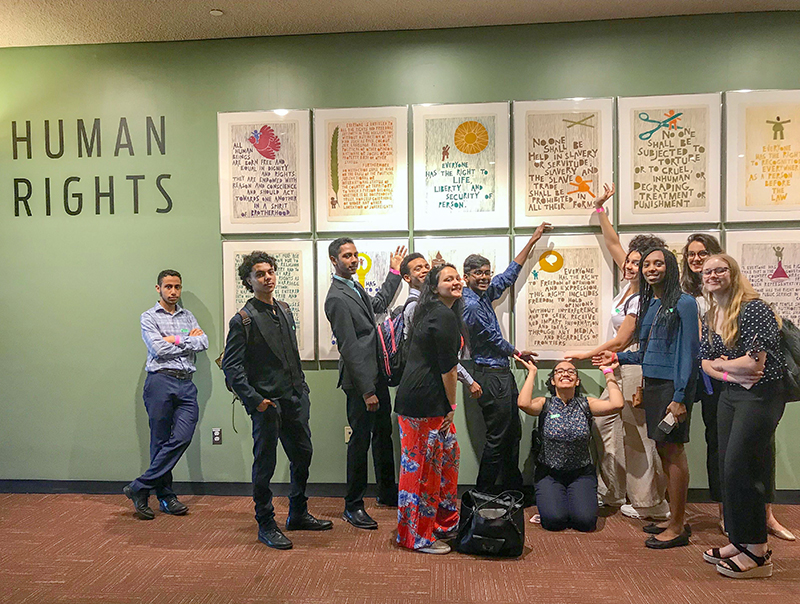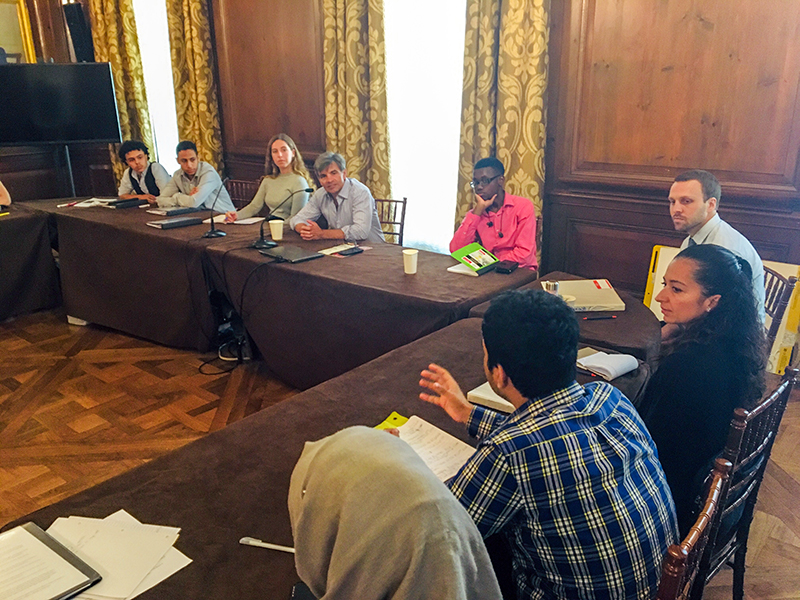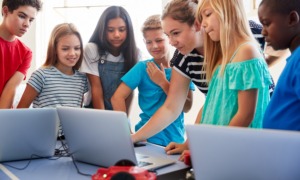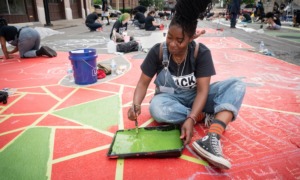
Photos by Global Kids
High school students at the three-week summer institute visited the United Nations, where they learned about critical global issues.
What if you were a member of the National Security Council and learned that a foreign country could be building nuclear weapons in violation of a treaty? How would you decide what to do?
How would you even assess the validity of the information?
A group of high school students from big-city public schools took on that responsibility at the Council on Foreign Relations (CFR), a nonpartisan think tank in New York, in July.
“It took us a while to make a decision,” said Josiah Dunn, a rising senior at John Adams High School in Queens, New York. There were multiple factors to weigh.
“We decided we would have a two-pronged approach,” he said.
The youthful council proposed sending troops to allied neighboring countries while also holding talks with Iran, the country that had potentially broken the treaty.
The hypothetical situation and role-play was part of a three-week summer program at the CFR developed by Global Kids, a 30-year-old nonprofit that engages young people in critical issues affecting the world.
Global Kids runs after-school programs in more than two dozen schools in underserved neighborhoods in Washington, D.C., and New York City. About 26 students took part in the “U.S. in the World” Summer Institute at the CFR.
Students visited the United Nations, heard TV host and commentator George Stephanopoulos speak about the role of the media and were briefed by CFR senior fellows.
“Our goal is to help young people understand the importance of being engaged in international affairs … and how foreign policy can impact their own lives and communities,” said Evie Hantzopoulos, Global Kids executive director.
To Tanzila Rahman, a rising senior at John Adams High School, the biggest impact came from a presentation about violence against the Rohingya in Myanmar.

Students learned about attacks on journalism from television commentator and former Democratic adviser George Stephanopoulos (fourth from left).
“So many people are being killed and villages are being burned down,” she said. She plans to go back to her school, talk to students and do a presentation about the situation.
The National Security Council role-play also opened her eyes, she said.
Journey Coates, a rising junior at the Beacon School in Manhattan was struck by the violence that journalists face in some countries, as well as the amount of misinformation they must contend with.
Moving in new directions
For some of the students, the experience is a turning point.
“To be honest I took part because I had nothing to do this summer,” said Abdullah Mazumer, a rising senior at William Cullen Bryant High School in Queens. But the visit to the United Nations really sparked his interest. During the summer institute he learned about China’s social credit scoring system, an effort to bring together many government and private records on an individual (such as credit rating, court records and financial information) and assign each person a score, which could be used to impose travel bans and blacklists.
It could be a major breach of an individual’s privacy, Abdullah said.
“CCTV cameras are [already] everywhere in China,” he said. “[Social credit scoring] is going to spread. People will have to make a decision.”
Students in the program develop a peer education project for their schools or communities. Jkaela Maniago, a rising senior at William Cullen Bryant High School, plans a presentation on what it means to be a global citizen.
Journey will be creating a video about the journalists imprisoned in different parts of the world.
One of Abdullah’s concerns is that young people don’t have enough voice in decision-making. He would like to see a youth representative in Congress.
The summer institute not only benefits young people, but brings their voices and experiences to the senior fellows at the CFR, Hantzopoulos said.
“Young people, especially those from marginalized communities, bring fresh and important perspectives to conversations about foreign policy,” she said.































